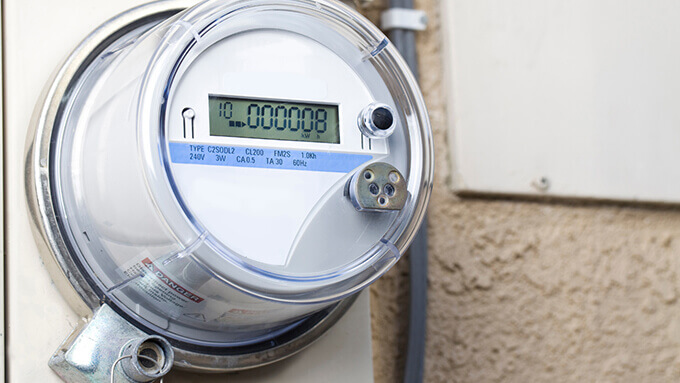Source-Based Support Fee Mechanism and Its Effects on Existing Bilateral Agreements
Introduction
Turkish electricity market has been going through turbulent times particularly in 2022. Steep increases in commodity prices that are used in electricity generation have urged the policy makers to take measures for minimizing further price increases in the electricity market as well as for maintaining security of supply. One such measure was the introduction of the source-based support fee mechanism.
In broadest terms, this mechanism contemplates that low-cost power plant owners will set aside a portion of their revenues generated from their electricity trade and pay that portion to Enerji Piyasaları İşletme Anonim Şirketi (“EPİAŞ”) (in English: Energy Exchange Istanbul), which will then distribute the accumulated pool of cash to high-cost power plants. Although an exception was contemplated for bilateral agreements[1] concluded before the adoption of source-based support fee mechanism, there has been a recent disagreement between Energy Market Regulatory Authority (“EMRA”)/EPİAŞ and market participants as to the scope of such exception. This was followed by retrospective invoices and administrative lawsuits.
This article will examine the source-based support mechanism and its implications on the existing bilateral agreements.
Source-Based Support Mechanism
The Construct of Source-Based Support Mechanism
On 05.03.2022, Electricity Market Law numbered 6446 (“EML”) was amended by introduction of a subsection to article 17, which is entitled as “Tariffs and Supporting of the Consumers”. This new subsection of article 17 has authorized EMRA to determine source-based support fees for a period not longer than 6 months. According to this provision, the support fees will be collected from low-cost electricity producers and will be used to support security of supply, high-cost generation and/or customers. The provision also contemplated that implementation principles and procedures will be determined by EMRA.
Soon after this amendment, on 18.03.2022, EMRA issued its decision dated 13.03.2022 and numbered 10866 (“Source-Based Support Decision”).[2] Source-Based Support Decision covers the procedure as to determination of the support fee and its usage.[3] The next subsection states that Source-Based Support Decision applies to licensed power plants.
Source-Based Support Decision states that EMRA will determine maximum settlement prices[4] for different types of power plants based on the source used by them.[5] These maximum settlement prices will then be used for calculating the support fees. Another variable in calculating the support fees will be the market clearance price. The market clearance price is the price of electricity in the organized electricity market, which is determined on hourly basis.[6]
Support fee calculation method is set out under article 5 of the Source-Based Support Decision. Pursuant to article 5/1, support fee will be calculated for every hour within which market clearance price is higher than maximum settlement price. In such case, the support fee will be calculated based on the difference between the market clearing price and the maximum settlement price. The electricity generator will pay this amount for every MWh it sells.
On 29.03.2022, EMRA determined the maximum settlement prices for different power plants. According to this, TL/MWh price for imported coal-based plants was 2.500 TL, for Natural Gas/Fuel-Oil/Nafta/LPG/Motorin it was 2.500 TL and for plants based on other resources, it was determined as 1.200 TL effective for 6 months as from 01.04.2022.[7] Thereafter, with its decision dated 29.09.2022 and numbered 11270, EMRA has extended the application for another 6 months and determined new maximum settlement prices effective as from 01.10.2022.
Exception as to Existing Fixed-Fee Bilateral Agreements
Soon after its enactment, Source-Based Support Decision was amended to introduce an exception. With its decision dated 29.03.2022 numbered 10887[8] EMRA articulated that an exception will be provided for fixed-fee bilateral agreements if the following conditions are met: [9]
- The contracts must be for a fixed-fee. Source-Based Support Decision defines “fixed fee” as a fee which is not indexed to a variable element such as consumer price index, YEKDEM or market clearance price.
- The contracts must be submitted to the market management system before 08.03.2022, and they must be for the period after 01.02.2022.
- Relevant system participants must submit, to EPİAŞ, copies of their bilateral agreements and relevant supporting documents as set out in the Source-Based Support Decision.
This was followed by EPİAŞ’s announcement, on its website, as to required documentation for exemptions.[10]
Arguments Surrounding Fixed Fee Requirement
After the relevant documents have been submitted to EPİAŞ, EPİAŞ sent a further request to the applicants asking for additional documents demonstrating that fixed fee is applied through the supply chain until the end consumer. This has sparked up the arguments as to whether the exception provision of Source-Based Support Decision, that is article 7/1, actually contemplated such a pass-through of the fixed price until the end consumers. With its decision dated 29.09.2022 and numbered 11269, EMRA has amended the article 7/1 by including the expression “until the final consumer”, in parenthesis, next to the requirement of fixed fee.
This amendment has brought further attention to the debates as to the extent of fixed price requirement. The current practice reveals that EMRA and EPİAŞ are of the opinion that the true construction of article 7 requires the fixed fee to pass through until the final customer. Otherwise, the purpose of the provision would be defeated. On the other hand, a contrary opinion provides that the provision does not contemplate such requirement and it may not be incorporated through interpretation.
As outlined above, it is clear that the version of the Source-Based Support Decision did not contemplate such requirement when these applications were made. The question is, therefore, whether the provision may have been interpreted so as to extend the scope of the fixed fee requirement. This will be decided in the administrative lawsuits filed in connection with the Source-Based Support Decision. However, unless a stay order is granted or the relevant administrative transactions are cancelled, Source-Based Support Decision will be applied pursuant to EMRA’s and EPİAŞ’s interpretation.
Existing Bilateral Agreements
As mentioned above, the exception was only available for fixed price bilateral agreements. As a result of the differences of opinion, some fixed price agreements which were considered to be exempted, are now retrospectively subjected to a different treatment under Source-Based Support Decision. Hence, an additional financial burden arose for some electricity generation companies as a result of retrospective invoices regarding support fee. Although the financial aftermath should be evaluated on a case-by-case basis, the severity of this added financial burden should not be underestimated. As a result, those who are not able to benefit from the exception have become inclined to request revision of their contractual terms pursuant to the doctrine of hardship as per article 138 of Turkish Code of Obligations numbered 6098 (“TCO”). Indeed, in a reported decision concerning a bilateral agreement which was not granted exception[11], the electricity producer argued that it could not be expected to bear this increased financial burden and sent a termination notice. It also requested an injunctive order to prevent its customer from cashing the securities granted under the bilateral agreement and the court[12] granted such injunction.
Legally speaking, a hardship argument should be based on occurrence of an unforeseeable event which changes circumstances to such an extent that the affected party may no longer be expected, pursuant to the principle of good faith, to perform the agreement pursuant to its original terms.[13] As per TCO article 138, the rule may be broken down into four parts:
- Occurrence of an extraordinary and unforeseeable event.
- A change in the circumstances not attributable to the affected party.
- The change makes it unjust to expect the affected party to perform as per the original terms.
- The obligation must not be performed or performed with a reservation of rights as to hardship.
The first and second conditions are relatively straight-forward. It may be argued that source-based support mechanism should be regarded as an unforeseeable event for the bilateral contracts executed before the amendment of EML on 05.03.2022.[14] However, whether it may be regarded as extraordinary warrants a separate analysis. The resulting change of circumstances will, in most cases, not be attributed to the affected party.
The third condition, however, is more challenging. This needs to be evaluated on a case-by-case basis.[15] As a starting point, it is possible to note that the threshold is not at the point where the performance results in party’s financial destruction.[16] On the other hand, it is also true that the gravity of the impact should be to such an extent that it becomes contrary to good faith principle to expect the affected party to perform as per original terms. Though it is possible to set the contours of reasonableness to some extent, the subjectivity of this criteria does not allow any further certainty.
The fourth condition is presumably the most problematic one in this circumstance. As noted above, the situation as to some of those contracts which were thought to be within the scope of the exception has changed. Presumably, those contracts have been performed without a reservation. The question as to whether a hardship argument may be entertained in such case is discussed in the literature.[17] The theoretical arguments and opinions surrounding this subject are beyond the scope of this article. Suffice it to say that the language of TCO article 138 does not seem to favor such interpretation. Therefore, the legal basis of such claims should be carefully considered by those who intend to initiate proceedings based on retrospective invoices of support fee.
Conclusion
With the amendment made to EML and adoption of Source-Based Support Decision, EMRA had introduced a novel price control mechanism. Although an exception was introduced for fixed price bilateral agreements, the scope of such exception has sparked some disputes before administrative courts. This situation has created a fertile area for further disputes which will be adjudicated before civil courts or arbitral tribunals. Such disputes, if they arise, will need to be considered by the courts or arbitral tribunals by taking a variety of factors and a multitude of theoretical questions into consideration.
- Bilateral agreements are defined as commercial agreements governed by private law provisions, executed between individuals and legal entities for the sale and purchase of electricity and/or capacity, and which are not subject to EMRA’s approval. (EML Art 1/j)
- Published in the Official Gazette dated 18.03.2022 and numbered 31782.
- Source-Based Support Decision Art. 1.
- This term is defined in the Source-Based Support Decision Article 3/1-a. According to such definition, the term “maximum settlement price” refers to the price that will be determined pursuant to Source-Based Support Decision as per generation costs for each type of commodities used in electricity generation.
- Source-Based Support Decision Art. 4/2.
- Electricity Market Balancing and Settlement Regulation Art.4/1-ççç.
- EMRA Decision dated 29.03.2022 and numbered 10888 published in the Official Gazette dated 30.03.2022 and numbered 31794.
- Published in the Official Gazette dated 30.03.2022 and numbered 31794.
- Source-Based Support Decision Art. 7/1 and Provisional Article 1.
- https://www.epias.com.tr/tum-duyurular/piyasa-duyurulari/elektrik/kayit-ve-uzlastirma/kaynak-bazinda-destekleme-bedelinin-belirlenmesine-ve-uygulanmasina-iliskin-usul-ve-esaslar-hk/ (Access Date: 08.02.2023)
- İstanbul Regional Court of Appeal 13th Civil Division E. 2022/1384, K. 2022/1175 t. 13.06.2022. (https://emsal.uyap.gov.tr/, Access Date: 08.02.2023).
- İstanbul 19th Commercial Court 2022/151 D. İş K., 2022/151 t. 29.04.2022. The lawsuit before İstanbul Regional Court of Appeal 13th Civil Division was about the defendant’s argument that the injunction order should be deemed as automatically lifted. It must be noted that, the decision is not clear as to whether the court grounded its decision based on TCO Art. 138, or a contractual right granted to the terminating party.
- TCO Art. 138.
- Cf. In a similar case whereby EMRA imposed a similar price restriction in the petroleum sector, the court concluded that EMRA is legally authorized the set the minimum and maximum prices and to take appropriate measures. The first instance court and the Court of Cassation did not consider this as unforeseeable. Court of Appeal 19. HD., E. 2016/17473 K. 2017/3673 T. 11.5.2017 as cited in Baysal, Başak: Sözleşmenin Uyarlanması BK m. 138 Aşırı İfa Güçlüğü, İstanbul, On İki Levha, 2020, p. 587 et seq; Also See: Akıncı, Şahin: Covid 19’un Borç İlişkilerine ve Bazı Borçlar Hukuku Sözleşmelerine Etkisi, İstanbul Ticaret Üniversitesi Sosyal Bilimler Dergisi Covid-19 Hukuk Özel Sayısı, 2020, C. 19, S. 38 p. 87 et seq. (https://dergipark.org.tr/tr/download/article-file/1173351, Access Date: 22.02.2023)
- Tile, Latif: Uyarlama Sebebi Olarak İfa Güçlüğü, Doktora Tezi, Antalya, Akdeniz Üniversitesi Sosyal Bilimler Ensitüsü, 2018, p. 123 (https://tez.yok.gov.tr/UlusalTezMerkezi/tezSorguSonucYeni.jsp, Access Date: 09.02.2023).
- Oğuzman, Kemal/ Öz, Turgut: Borçlar Hukuku Genel Hükümler, Cilt 1, İstanbul, Vedat Kitapçılık, 2020, p. 212.
- See: Baysal, p. 350 et seq., Akıncı p. 87 et seq.
All rights of this article are reserved. This article may not be used, reproduced, copied, published, distributed, or otherwise disseminated without quotation or Erdem & Erdem Law Firm's written consent. Any content created without citing the resource or Erdem & Erdem Law Firm’s written consent is regularly tracked, and legal action will be taken in case of violation.









